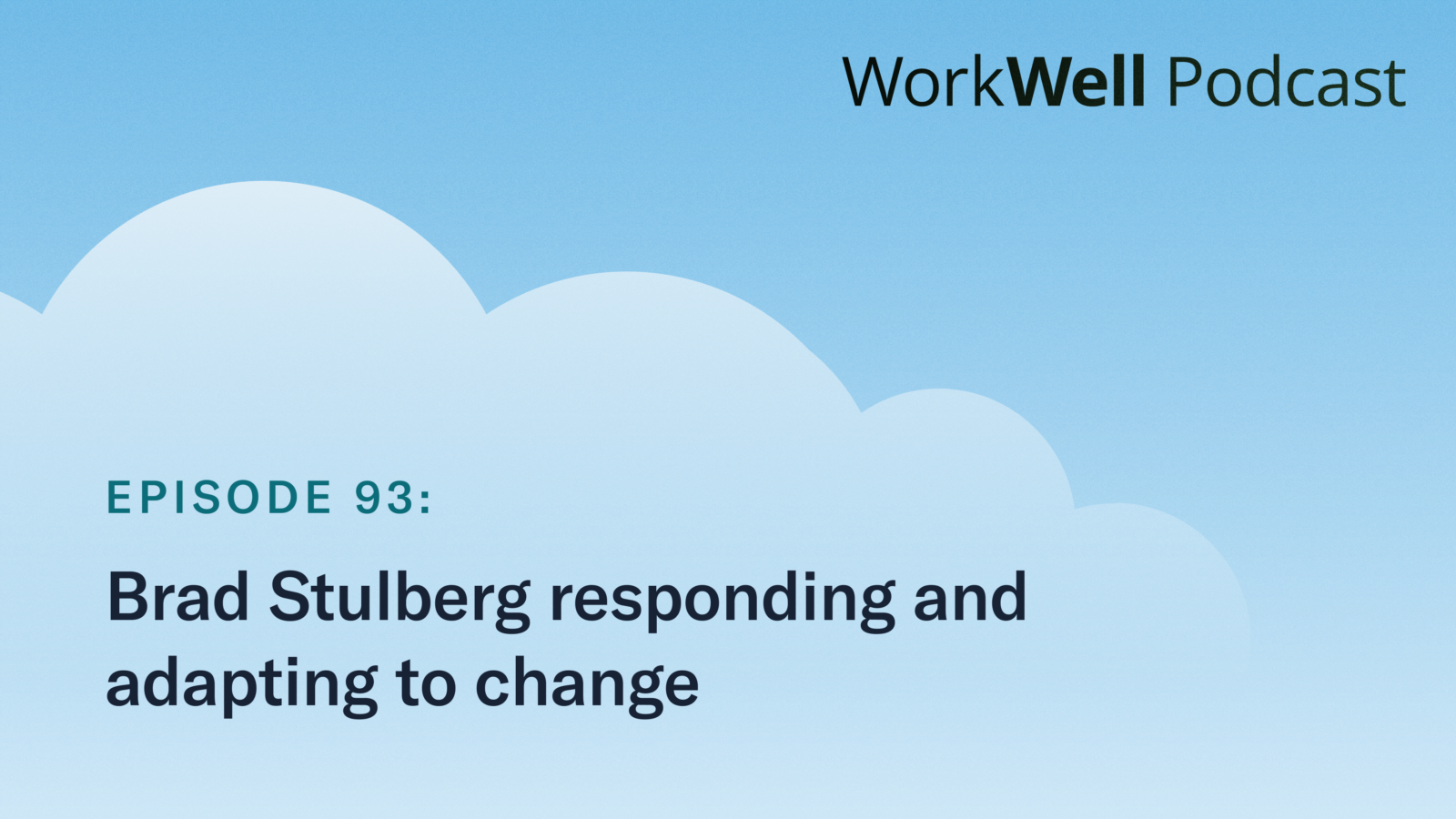In the WorkWell Podcast, Jen Fisher — Human Sustainability Leader at Deloitte and Editor-at-Large, Human Sustainability at Thrive Global — sits down with inspiring individuals for wide-ranging conversations about how we can develop a way of living and working built on human sustainability, starting with ourselves.
This week, Brad Stulberg, the executive coach and best-selling author whose latest book is Master Of Change: How to Excel When Everything Is Changing – Including You, shares techniques for staying strong when we’re faced with difficult changes in life and at work.
On coming to terms with change in the midst of personal and professional challenges:
“Within the last six years, there has been so much change in my personal life. I’ve become a father two times, I’ve had major surgery on my leg that forced me out of a sport that was a central part of my identity, and I left a job with a large organization to go at it on my own. I moved across the country and I became painfully estranged from certain family members. Then of course there was COVID, which was the great collective societal change that we all experienced. And I started to think about change in my own life.”
On how to foster a “rugged, flexible mindset”:
“The first thing is to realize that change isn’t something that happens to you, but that change is something that you’re always in conversation with. The second important step in cultivating a rugged and flexible mindset is accepting reality for what it is. In order to work with change, you’ve got to confront it. You can’t deny it or delude yourself or pretend it’s not happening. Equally important is setting realistic expectations. So if you think that everything is going to be stable, always, you’re going to be in for a really rude awakening when things change, which they always do. Throughout the crazy weather of life, there will be times when you’re knocked down, no doubt. The goal of rugged flexibility is to be able to weather those storms.”
On the value of simple routines:
“When the world around you feels like it’s chaotic and complex, the more that you can have routines and sources of simplicity in your own life, the better. If you can still show up and do your workout every morning, spend Saturday afternoons in the garden, or have dinner with the family, those routines can help bolster us when we face the storm in other areas of our life.”
On “diversifying” your sense of identity:
“Think of your identity as a house; you can spend a lot of time in one room, but you’ve got to make sure those other rooms still exist. I’ve got my writer/author room, I’ve got my coaching room, but then I’ve got my husband room, my dad room, my neighbor/friend room, and my athlete room. What this does is that whenever there is a real downswing in one or maybe even two of those areas, I can walk into another room and gain stability and confidence there.”
To hear more from Jen and Brad, listen to this full episode here, available wherever you get your podcasts. Visit the WorkWell library for the full collection of episodes.


